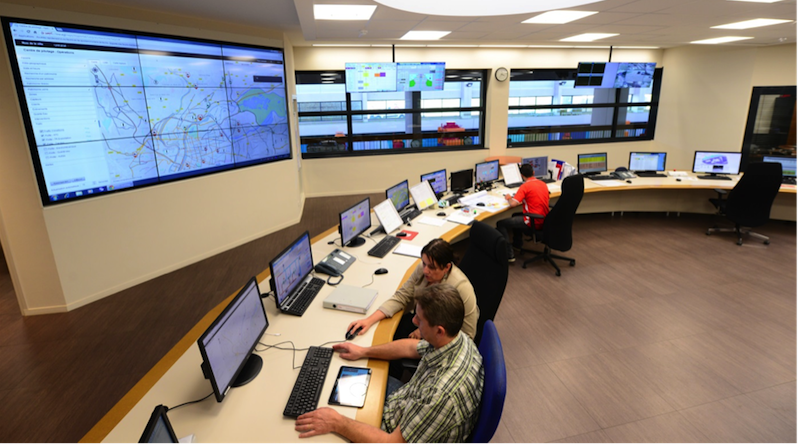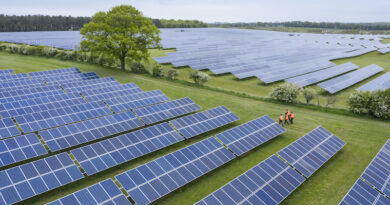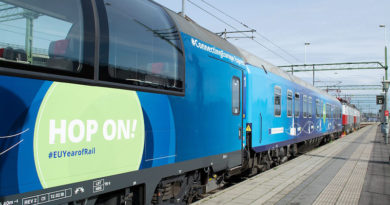
Clarifying rights of access and use of data to promote sustainable digital and data-driven solutions
The European Digital Single Market strategy identifies the digitisation and particularly data driven growth as the future growth engine for Europe. A strong emphasis is put on the significance of removing obstacles for the European data economy in order to stimulate innovation and investments within the single market, and to create business opportunities for European companies.
Digital technologies are delivering cross-sectoral efficiencies to business, including SMEs. As an example,
the market for IoT components and systems has grown by 160 % in 2013 and 2014, and is expected to grow more than 30% in the next ten years.
For instance, a company like Veolia operates some 6 million connected devices worldwide.
The utilities sector may be perceived as trailing behind when it comes to digital innovation in comparison to industries like retail, banking or insurance. However, this sector is now getting on the digital bandwagon too, with online customer engagement, smart sensors, and better use of advanced analytic capabilities.
Digital technologies give utility companies the opportunity to collect much richer data, analyse them for service improvements and provide new services or products.
As many other economic operators, Veolia is leveraging digital transformation in order to optimise the performance of its existing services provided to industrial and municipal clients, as well as to citizens and to create new ones.
As part of this data-driven approach, Veolia develops systems enabling its customers to monitor their water services or energy facilities in near-real time. In the area of waste management, digital technologies are used to connect actors and develop innovative solutions, such as connected devices that allow for smarter management of urban waste.
The infrastructures linked to Veolia’s activities are essential for the cities there is no city without water network or waste management plan. Therefore, Veolia is well placed to help its customers, municipalities and citizens to evolve towards digital and data-driven solutions, as they are a natural extension of its activities.
The need for a sound legal framework
However, the introduction and expansion of the smart solutions may be in some cases hampered due to an unclear legal framework and divergent approaches at national level. The European Commission has been perceptive on this issue and is preparing initiatives “on the EU free flow of data cooperation framework which takes into account the principle of free flow of data within the EU.”
In the current context of growing digitisation and development of data-driven solutions, Veolia supports the Commission’s objective to clarify the framework for the flow, access and use of non-personal data within the EU.
Indeed, while the General Data Protection Regulation (GDPR) oversees the movement of personal data within the EU, there are currently no common rules among Members States for accessing, sharing and transferring non-personal data.
Part of building a vibrant European Data Economy is to enable providers and users of data-driven services to benefit from a single market that does not unfairly restrict the flow of data within the EU, while preserving legitimate industrial and business interests of data producers and processing companies.
Veolia is established in countries worldwide and as such the company historically has data stored and processed in different places across the EU. In the context of growing digitisation, Veolia, as other actors, is considering the solutions to evolve towards a “datacenter-less” approach, making it easier to exchange and process data between countries to enhance its own operational performance.
The significance of access and re-use of non-personal data to build a European data economy
Allowing data to flow more freely within the EU seems necessary.
This objective could be achieved by harmonizing the approach of localisation requirements on the EU level. In the same way, the emphasis should be made on the dissemination of the state-of-the-art ICT management best practices to address the concerns about data security.
The ability to transfer and to obtain access to data is becoming more and more important for companies, no matter their size or the geographic area where they operate. Therefore, the Commission believes that the trading of non-personal data it promotes would give an opportunity to the companies needing data for their products or services to obtain them otherwise than by directly generating them.
For the companies that generate data, such trading would open some additional sources of revenue, and which is very important in building growing and sustainable digital ecosystems collaboration opportunities.
The Commission’s approach which looks at promoting the sharing of data by enabling the trading of machine-generated data, while seeking to avoid the disclosure of sensitive and confidential data, appears legitimate.
However, there is still a need to clarify legal situation of the economic operators investing in sensor-equipped machines, software, tools or devices, used within the infrastructures they exploit under a contract with their customers (public or private). It is paramount to remove uncertainties concerning the ability of such economic operators to access and use the data they generate this way.
It seems therefore necessary to define rights of access and use of data, rather than their “ownership”.
EU data to tackle environmental challenges in the interest of EU citizens
Provided such legal framework is in place, the unleashing of data flows across the EU could be instrumental in addressing the new unprecedented challenges in areas such as clean water, sanitation, congestion, waste management and energy services. Indeed, to meet the daunting issues posed by exploding urbanisation, companies and policy makers are increasingly looking to emerging technologies that rely on data.
Therefore the development of an EU data economy will enable the expansion of smart solutions which in turn will be rewarding for European citizens and the environment. For instance, this would be beneficial for the growth of smart cities, which use digital technologies to improve the comfort of citizens, solve problems more efficiently, and make the most of the economic development opportunities they bring.




